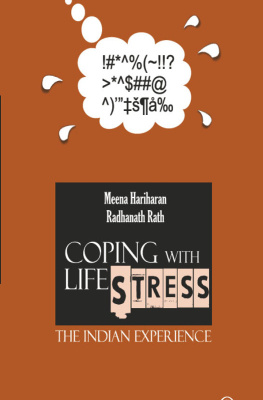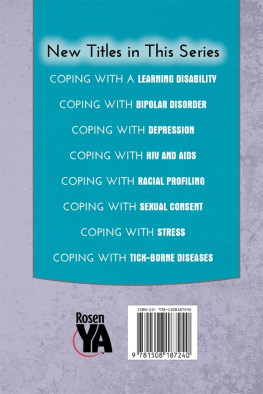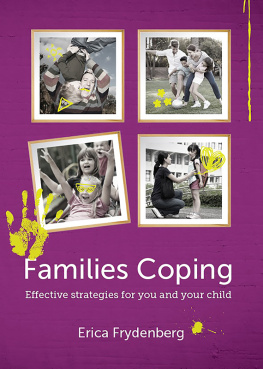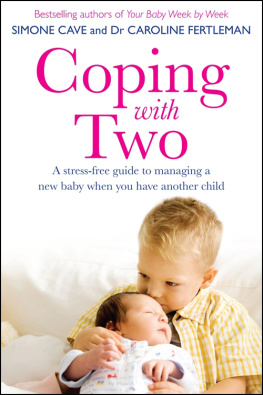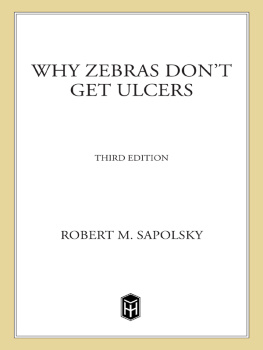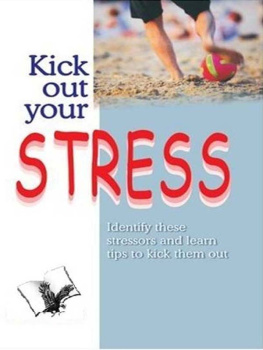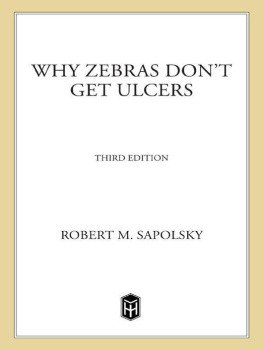COPING WITH
LIFE STRESS
COPING WITH
LIFE STRESS
THE INDIAN EXPERIENCE
Meena Hariharan
Radhanath Rath
Copyright Meena Hariharan and Radhanath Rath, 2008
All rights reserved. No part of this book may be reproduced or utilised in any form or by any means, electronic or mechanical, including photocopying, recording or by any information storage or retrieval system, without permission in writing from the publisher.
First published in 2008 by
SAGE Publications India Pvt Ltd
B / I-1 Mohan Cooperative Industrial Area
Mathura Road, New Delhi 110 044, India
www.sagepub.in
SAGE Publications Inc
2455 Teller Road
Thousand Oaks, California 91320, USA
SAGE Publications Ltd
1 Olivers Yard, 55 City Road
London EC1Y 1SP, United Kingdom
SAGE Publications Asia-Pacific Pte Ltd
3 Church Street
#10-04 Samsung Hub
Singapore 049483
Published by Vivek Mehra for SAGE Publications India Pvt Ltd, typeset in 10/12 pt Ottawa by Excellent Laser Typesetters, Delhi and printed at Chaman Enterprises, New Delhi.
Library of Congress Cataloging-in-Publication Data
Hariharan, Meena.
Coping with life stress: the Indian experience/Meena Hariharan, Radhanath Rath.
p. cm.
Includes bibliographical references and index.
1. Stress (Psychology) 2. Stress (Psychology)Case studies. 3. Stress managementIndia. I. Rath, R. II. Title
BF575.S75H396 155.9040954dc22 2008 2007039242
ISBN: 978-93-5280-319-4 (e-Pub)
T he SAGE Team: Sugata Ghosh, Vikas Jain and Trinankur Banerjee
Illustrations by S. Devendram
Thank you for choosing a SAGE product!
If you have any comment, observation or feedback,
I would like to personally hear from you.
Please write to me at
Vivek Mehra, Managing Director and CEO, SAGE India.
Bulk Sales
SAGE India offers special discounts
for purchase of books in bulk.
We also make available special imprints
and excerpts from our books on demand.
For orders and enquiries, write to us at
Marketing Department
SAGE Publications India Pvt Ltd
B1/I-1, Mohan Cooperative Industrial Area
Mathura Road, Post Bag 7
New Delhi 110044, India
E-mail us at
Get to know more about SAGE
Be invited to SAGE events, get on our mailing list.
Write today to
This book is also available as an e-book.

Contents
S tress and coping with stress are phenomena closely entwined with human life such that the effects of stress are directly linked to coping. They relate to minor and major events in life across the life-span. The phenomenon of stress and the process of coping have multi-disciplinary foci involving many disciplines, such as medicine, psychology, management, sociology and anthropology. A combined effort by biologists, psychologists and medical researchers resulted in the emergence of a new field psycho-neuroimmunology, which focuses on the relationship between psychological and biological factors. In essence, psycho-neuroimmunology deals with studying the impact of stress on the biological immune system and the psychological vulnerability of individuals to stress.
In the 1930s, Selye first propounded his theory on the psychological response to stress. Later studies verified and strongly established the universal physiological and immune response to stress. The psychological vulnerability to stress has been investigated from different angles. The study of Life Events by Holmes and Rahe (1957), (adapted to Indian Culture by few psychologists) is one such study. While one cannot underestimate the value of such checklists for their predictability of psychosomatic disorders, they tend to de-emphasise the role of the human being as an organism with the abilities of cognitive, emotional and behavioural reactions characterised by unique individual differences. Personal controlparticularly an individuals perception about the sameis directly linked to coping under stressful conditions.
Perceptions of stress vary across cultures and societies. For example, in India the performance of a child in school or public examination system is a matter of great stress, both to the child and the parents, unlike in the West. Therefore, the complex process of coping with stress and the impact of stress on well-being can be best understood when analysed with due emphasis on personality and cultural variations. Coping is indeed a complex process where personality characteristics, situational demands and socialcultural elements play a significant role. This book makes an appreciable effort towards highlighting the effect of stress and coping with stress in the context of cultures. It is for the first time that numerous case reports were identified and brought together under various types of coping. The comprehensive academic analyses of these case reports provide a good insight into the contribution of personality and cultural aspects to effective stress coping. The case reports being typically Indian and the contrasts being drawn with Western culture in the process of analysis and discussion, represent a significant contribution to Indian psychology.
Most books on stress and coping can be categorised as theoretical, applied or popular books on the topic. The interplay between the mind and the brain in the context of on Complexities of Coping, open new doors to research on coping with stress. The case report analysis with its focus on the Indian perspective is a knowledge addition to the practitioners.
A book with such synthesis between theory and practice from the studentteacher duo of Dr Meena Hariharan and Dr Radhanath Rath covers the experience of two generations of Indian psychologists.
Seyed E. Hasnain
Vice-chancellor
University of Hyderabad
Hyderabad
T he study of stress and coping has encompassed a large arena of disciplines. They are researched and analysed under all branches of psychology covering Health Psychology, Environmental Psychology, Developmental Psychology, Neuro-Psychology, Organisational Behaviour, Clinical Psychology and so on. The subject of stress and coping are discussed as a biological or physiological component, cognitive component and behavioural or learned component. The chain of neuroendocrine events resulting in regulating sympathetic/adrenal response as well as the pituitary/adrenal response are studied as biological events of stress. The mental process of appraising the situation is discussed as the cognitive phenomenon. Such mental appraisal includes primary level conscious evaluative processes of judging the situation as harm or loss, threat or challenge. The secondary evaluation refers to existing resources of coping with the stressful situation. The resources include internal resources such as Internal locus of Control, ones ability to think and organise logically, self-esteem, self-efficacy and so on, and external resources such as money, social support network and so on.
The behaviour component refers to the behavioural response to the situation in terms of specific coping strategy. These coping strategies are discussed as learned behaviour appropriately reinforced across the life-span in various life experiences. Changes in coping strategies can be effected through conscious learning processes, observational learning, behaviour modification techniques or bio-feedback.

